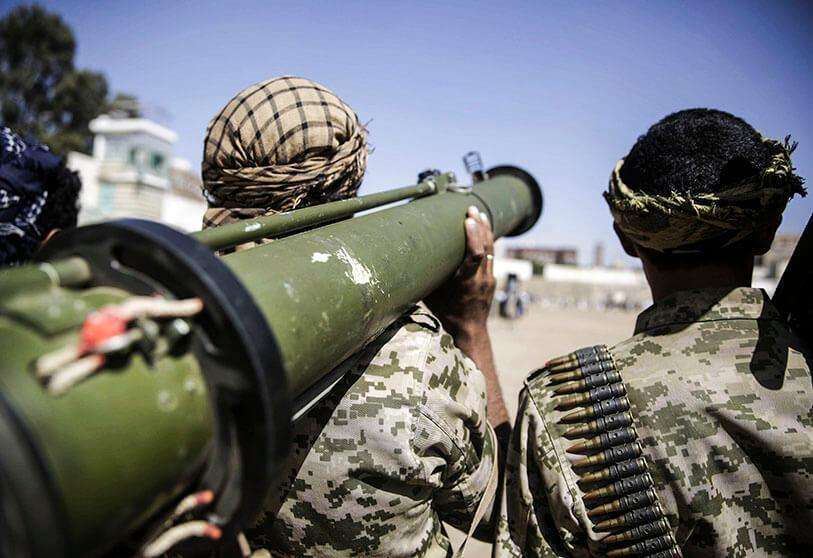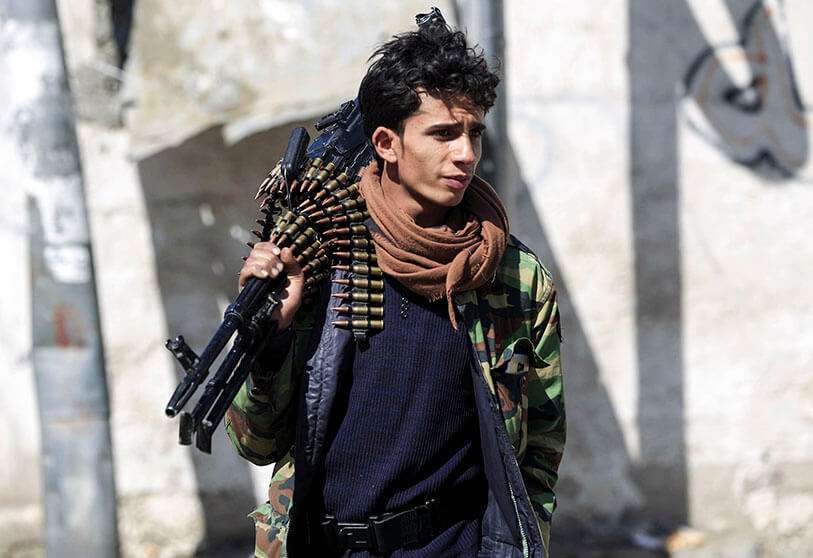Houthis step up attacks in Yemen as they seek to strengthen their position ahead of negotiations

The situation in Yemen is becoming increasingly complex, with tensions escalating in a context where diplomatic efforts to reach a peace agreement are the order of the day. It is common that just before a ceasefire agreement or a situation of relative calm is reached, violence between the parties involved reaches its peak, with the aim of arriving at the dialogue table with a stronger position vis-à-vis the opponent.The Houthis, the Iranian-backed Shiite rebel militia at odds with the Yemeni government and the Saudi-led Arab coalition, have recently stepped up their attacks in several Yemeni regions and Saudi Arabian territories. The aim of this escalation of violence on the part of the Houthi rebels is more than clear: to be able to arrive with a strong position at an imminent dialogue table.
The escalation of these attacks comes during the visit of the United Nations (UN) envoy for Yemen to Iran to discuss the conflict in the country with Iranian Foreign Minister Javad Zarif and other senior officials. The two discussed the urgent need for a nationwide ceasefire, the opening of Sana'a airport and the easing of restrictions on ports in Hodeidah, Stephane Dujarric, spokesman for the UN chief, said in New York.
Meanwhile, the Houthis have resumed their efforts to control the eastern city of Marib. The city is of great importance as it is rich in oil and gas, as well as being the headquarters of the defence ministry. Attacks on Marib have been repelled by the Yemeni army. At least two pro-government forces military officers said the Houthis had deployed fighters and launched attacks from several fronts against the city.
Brigadier General Abdu Abdullah Majili, an army spokesman, confirmed to an Arab media outlet that the Houthi rebels had been pushed back. Sultan al-Arada, the governor of Marib, vowed to defeat the rebel group, accusing them of never taking calls for peace seriously.

Still, the Iranian-backed Shiite militia is relentless in its attempts to undermine the recognised government of President Abdo Rabu Mansur Hadi, with the rebels launching several simultaneous attacks on the neighbouring city of Jouf and other disputed areas. The Houthi rebels have even carried out attacks on Saudi soil as a clear warning of the Gulf state's support for Yemen's government. The latest attack took place at Abha airport in southern Saudi Arabia. The offensive was carried out using drones and is the third attack on the Kingdom in the last week.
Drone and missile attacks by Yemeni rebels against Saudi Arabia have been commonplace since the Riyadh-led coalition intervened in the Yemeni civil war in 2015 in support of the internationally recognised government of Abdo Rabu Mansur Hadi.
All these attacks point to a clear strategy on the part of the rebel group, according to statements made by Yemeni political analyst Mohammed al-Shubeyri to Anadola Agency: "the Houthis' strategy of attacking different areas in Yemen such as the strategic city of Marib, in order to gain political benefits, is not new".

The analyst noted that by increasing attacks, the Houthis are trying to strengthen their conditions for any possible negotiations under the supervision of the US and Western countries in Yemen. The Shia militia has taken advantage of the hope offered by the new Biden administration, after removing the rebel group from the list of terrorist organisations and halting arms sales to Saudi Arabia.
In addition to strengthening their position in the face of possible negotiations, observers believe that there may be another motive behind this escalation of violence by the Houthis. It may be a way of blackmailing the international community and the new US administration to return to negotiations on the Iranian nuclear dossier without preconditions.
While ceasefire efforts continue, Yemen is already the worst humanitarian catastrophe facing the United Nations, with more than 80 per cent of the population in need of humanitarian aid and some 3.6 million internally displaced persons.









